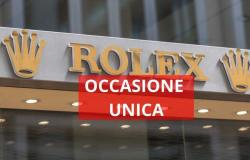Like Barack Obama, Matteo Renzi and partly even like the former Prime Minister of London David Cameron, Emmanuel Macron is a talented leader: in good faith, brilliant, surrounded by well-chosen collaborators, capable of vision and eloquence. Like them, clearly narcissistic. Like them, incapable of reading the profound moods of their country and speak to the broadest strata of society; unable to give them hope, at least for a few years now. Therefore incapable of stemming the populist fever, which circulates relentlessly.(Do not hesitate to write to me: comments or complaints and proposals).
Deja-vu: suddenly a force at the edge of the system erupts
Because the season France is going through is only déjà vu, for those who have already experienced it in Italy, the United States, Great Britain or Greece. At a certain point, a new force or leader emerges from the edges of the system and spreads, proposing simple solutions to complex problems. Syriza, the party of Alexis Tsipras, promised the Greeks the renunciation of the European program linked to hundreds of billions in loans that his country desperately needed.
The precedent of Brexit and Trump’s victory
Boris Johnson convinced millions of English people that thanks to Brexit he would refinance healthcare with 350 million pounds a week and eliminate their humiliating, lethal waiting lists. Donald Trump wanted – wants – to make America “great again” with more walls and tariffs at the borders, even though he knows that a good part of the growth of the United States depends on immigration. And the 5 Star Movement knew how to abolish poverty, while all the Italian right assured – until a few years ago – that the problem was the euro: it was enough to get out.
The question of hope
It all melted away in the test of power, of course. And in the melting away the rubble remained, more or less removable. But that question of hope – or at least the desire to poke a finger in the eye of whoever you think has taken away your hope – well, it remains. Irrepressible in society. So the fever of populism continues to swirl. And now it is having its moment in France. The Rassemblement National of Marine Le Pen and Jordan Bardella promises to cut taxes on the lower middle classeson businesses and also on the consumption of energy and fuel, in theory thanks to a scissors strike on welfare for foreigners (even regular ones).
Zero interest public loans
It promises zero-interest public loans for young people’s first homes, not to be repaid if a family has a third child (in the Fratelli d’Italia program for the 2022 elections there was the use of a “State guarantee fund” on mortgages for the first home). The Rassemblement National also talks about complete exemption from income tax for those under thirty (Fratelli d’Italia guaranteed complete tax relief for those under 30 “who start their own business” in 2022). The Rassemblement national has been talking for months about reducing the retirement age to sixty, he wants a “referendum on immigration” and more “economic patriotism”: among other things, we need to understand how it is applied – in a Bardella government – in the management of Franco-Italian industrial groups such as Stellantis or St Microelectronicswhere the government of Paris matters a lot.
And the left alternative?
As for the Nouveau Front Populaire, the left-wing and far-left alliance which in the polls is challenging Le Pen-Bardella for victory in the elections of 30 June and 7 July, is no exception. Sixth week of paid holiday, 15% increase in the legal minimum wage to 1,600 euros net, reduction of the pension age to 60 years, creation of half a million places in nursery schools, free canteens in all schools, ban on service interruption in the event of arrears on electricity and gas bills. And it’s just a summary.
Estimated cost of left-wing proposals
Estimated cost of the left’s proposals – assuming they are estimable – 280 billion per year. As for the Rassemblement national, the VAT reductions alone would cost almost 17 billion a year, while Le Pen’s program for the 2022 presidential elections was worth 120 billion. All this in a country with one of the highest deficits and debts in the European Union, on the threshold of a Brussels procedure – like Italy – and called upon to reduce it starting from the next budget law.
Voters are not stupid
But, precisely, the unlikely nature of the costs and prospects does not matter: not when the sense of rejection towards the elite is so endemic in society that the system of representation stops working. Voters are not stupid, nor naive. They simply don’t have time for details when the desire to express anger on the ballot paper winsdisgust, maybe envy, but certainly the need to believe that at least someone understands them.
What the elites propose
If the enlightened forces of reason think that the populists’ programs are false – they are – then what ideas does the elite propose to make people feel hope and dignity in the last corners of the country? Are those ideas of the most enlightened politicians – the Obamas, the Renzis, the Macrons – equally clear and capable of touching deep nerves? Who else talks to young people about the cost of housing or to older people about the availability of antibiotics in pharmacies? These are not topics for torrential speeches at the Sorbonne, like those that the young man at the Elysée loves. The same accusations at the Rassemblement National and the Nouveau Front Populaire of incompetence and irresponsibility in the economy, which I hear from Macron or his economic minister Bruno Le Maire, are not new. These are Cameron’s words against Brexit in 2016. They are likely to have the same effectiveness.
The acute phase
This is also why France is entering the acute phase of the fever that has already broken out elsewhere. It’s the fever of wrong answers to the right questions. Too often the forces of reason have made those questions taboo. And the more the populists who pose them are kept outside the walls, the more they become a magical object in the eyes of a growing part of society. Ultimately they must enter the forbidden city of power.
The sanitary cordon can fall
It is difficult for me to say whether Macron is serving the interests of France, Europe or his own by calling elections in such a brutal way after his latest defeat. Probably not. Surely sooner or later the “cordon sanitaire” must give way. Meanwhile, Greece, the United Kingdom and Italy have long since let populists inside their walls and they put the acute phase of the fever behind them.
The degradation of political language
In Rome no one talks about leaving the euro anymore; the elections in Great Britain today are being played between two moderate and not anti-European leaders; Greece is among the most predictable countries, politically, in the entire European Union. Having inoculated excess doses of the populist virus, where this happened, has immunized and appeased the electorate. Obviously the transition did not occur without damage, sometimes permanent. London is outside the European Union; Greece has lost precious years of recovery; Italy spent 200 billion on bonuses for the wealthy and above all it is experiencing a degradation of political language – of form and meaning – which now seems to be the new normality; populist politicians themselves don’t seem to care much that that very degradation alienates citizens from public affairs; they just need to capture the majority of the few who continue to vote. In the United States the fever never abated, despite the experience.
The bet with the ECB
The bottom line is that now it’s France’s turn, in November it’s the United States’ turn, and in a few years perhaps it’s Germany’s turn. So in what remains of this article I will try to give a picture of the bifurcations facing the French and us. Because the Paris accounts are already largely subject to excessive deficit proceedings in Brussels and the European Commission will propose their opening this week – for France, for Italy and for seven or eight other less serious cases – so on 16 July the Council of Economic Ministers of the European Union will make that procedure official and active. The new French government, whoever leads it, will start with that request – of legal value – to move practically immediately in the exact opposite direction compared to the thousand pharaonic promises of recent weeks.
The spread-saving shield
It’s not a bureaucratic detail. According to the rules of its “Transmission Protection Instrument” (TPI, which we call “spread-saving shield”), the European Central Bank can intervene to buy the public securities of a country under attack on the market – protecting it – but under two conditions: either that country stays away from a Brussels procedure on the accounts; or at least he follows what is asked of him in Brussels to bring the deficit back within limits. And France, like Italy, at a certain point may need that “spread-saving shield” of the ECB become a credible option. It may become necessary for the central bank to exercise its deterrent capacity, to block bearish bets on French debt and – by contagion – on Italian debt. We have anticipated, then seen and reported in recent days the market reaction to the events in France, which has already been remarkably nervous. And the situation can get worse before it gets better.
A crossroads for Jordan Bardella
So what is the crossroads for a hypothetical Prime Minister Jordan Bardella? He decides (with Le Pen) to go straight down his path, make even more deficits to realize his promises, challenging the ECB to force it to save a country of enormous systemic importance like France? It would be a high-risk gamble, a kind of James Dean-style “game of chicken”, to force the central bank to reduce rates or buy Paris bonds anyway before the financial earthquake destabilizes the euro area. Even if France does nothing to really respect the rules.
Or Bardella, hypothetical prime minister in July, could take another path. The intermediate path, à la Giorgia Meloni: forgetting or postponing a good part of the impossible electoral promises, perhaps arguing that the Macronians have left him with a situation that is too compromised; after all, this is what Meloni did by blaming the Superbonus, which she herself defended and let run for a long time. It’s too good to listen to Bocelli at the G7 sitting between Joe Biden and London Prime Minister Rishi Sunak. If you listen carefully, Bardella has already started to take this path. He goes back, suddenly he is vague about the promises, he complains about the state of the accounts that he will find. Thus the Rassemblement National would also enter the control room, perhaps without doing anything other than symbolic acts to assert its identity, but avoiding excessive market tensions. It would demonstrate that the far right is a credible government force and deserves the Elysée in 2027. There are intermediate paths between these two or the option, potentially also complicated for the markets, of a victory for the far left. In the end the question is whether putting a bad apple in Europe’s basket can heal that apple. Or put the entire basket at risk.
This article was originally published in the Corriere della Sera newsletter «Whatever it takes» edited by Federico Fubini, click here to subscribe.





